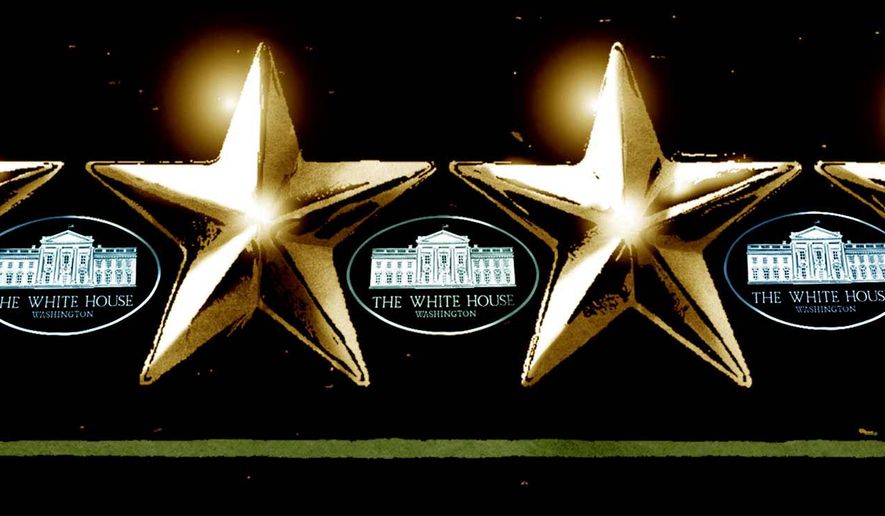OPINION:
Was something missing when, earlier this month, the White House announced that President Obama used his constitutional prerogative to put 214 convicts back on the street? Yes, we didn’t see a pardon for the person many Americans believe is the greatest general of his generation, David Petraeus.
True, the president’s latest use of his pardon power was to cut sentences. The White House proudly touts that “President Obama has surpassed the past nine presidents combined in total commutations.” Although the president is decidedly less generous in issuing full pardons, he has still delivered several dozen, and Gen. Petraeus ought to be among them.
Gen. Petraeus’ fall from grace is so well known it hardly bears repeating, but recall that in March 2015 he pleaded guilty to one misdemeanor, a violation of 18 U.S. Code, Section 1924 for the “unauthorized removal and retention of classified material.” In doing so, he admitted to the court that he improperly gave classified information to his biographer, and that he made some false statements to FBI interrogators.
Why weren’t those false statements grounds for charges? As The Washington Post reported, Gen. Petraeus’ lawyers were ready to show that the statements to the interrogators “weren’t material to the investigation and didn’t impede it.” This and other issues with the case may be the reason then-Attorney General Eric Holder told the newspaper there were “some unique things that existed in that case that would have made the prosecution at the felony level and a conviction at the felony level very, very, very problematic.”
As others have pointed out, Gen. Petraeus’ biographer was another Army officer (with whom he had an indisputably reprehensible extramarital relationship) who held an active security clearance (albeit without the requisite “need to know”). What is also undisputed is that, unlike other cases, there has never been any suggestion that any of the material might have fallen into hostile hands.
So how does Gen. Petraeus’ misconduct line up with that of others the president has already pardoned? Their offenses represent a cacophony of felonious criminality. The list includes drug dealers, thieves (including an armed robber), a variety of gun offenders, tax cheats, an Iranian hacker, fraudsters of every sort, counterfeiters, conspirators of all kinds — but especially in relation to the most addictive drugs on the planet: heroin, cocaine and methamphetamine — and, yes, even an adulterer.
While a couple of the pardon recipients had some military service, none has a record that approaches that of Gen. Petraeus. He repeatedly answered the most frantic calls of his country by serving multiple combat tours first in Iraq, and later in Afghanistan. In both countries, it was his indispensable leadership that avoided collapses that would have been catastrophic for not just for Iraqis and Afghans, but also for America’s global interests.
Of course, comparisons with Hillary Clinton’s email scandal and FBI Director James Comey’s highly controversial decision to not charge her are inevitable. But let’s not entangle the righteousness of pardoning Gen. Petraeus with today’s bitterly partisan politics. Rather, this is a question of doing the right thing for a man who has endured, along with his family, a degree of public humiliation for a misdemeanor offense that is truly unprecedented.
No one is saying, least of all Gen. Petraeus himself, that he did not make significant mistakes. But after Sept. 11, 2001, he gave everything he had fighting America’s wars, and the nation ought to consider whether it asked one human being to bear too much of the burden. Gen. Petraeus was, as Teddy Roosevelt might put it, “in the arena” as few others have been and — as Roosevelt pointed out, sometimes the “strong man stumbles” there. Whatever punishment his misdemeanor warranted, it has been extracted many times over.
A pardon won’t erase the facts — or the pain that Gen. Petraeus will no doubt bear for the rest of his life — but it will remind a nation where less than 1 percent serve in the armed forces and where 85 percent of young people say they “would ’probably’ or ’definitely’ not serve in uniform,” that the sacrifice of military service still counts for something.
In freeing hundreds of drug offenders and other convicts, the president rightly characterizes America as a “nation of second chances.” It’s now time to give Gen. Petraeus his second chance by clearing his record. He’s earned it.
• Charles Dunlap is the executive director of Duke Law’s Center on Law, Ethics and National Security and is a retired Air Force major general.




Please read our comment policy before commenting.